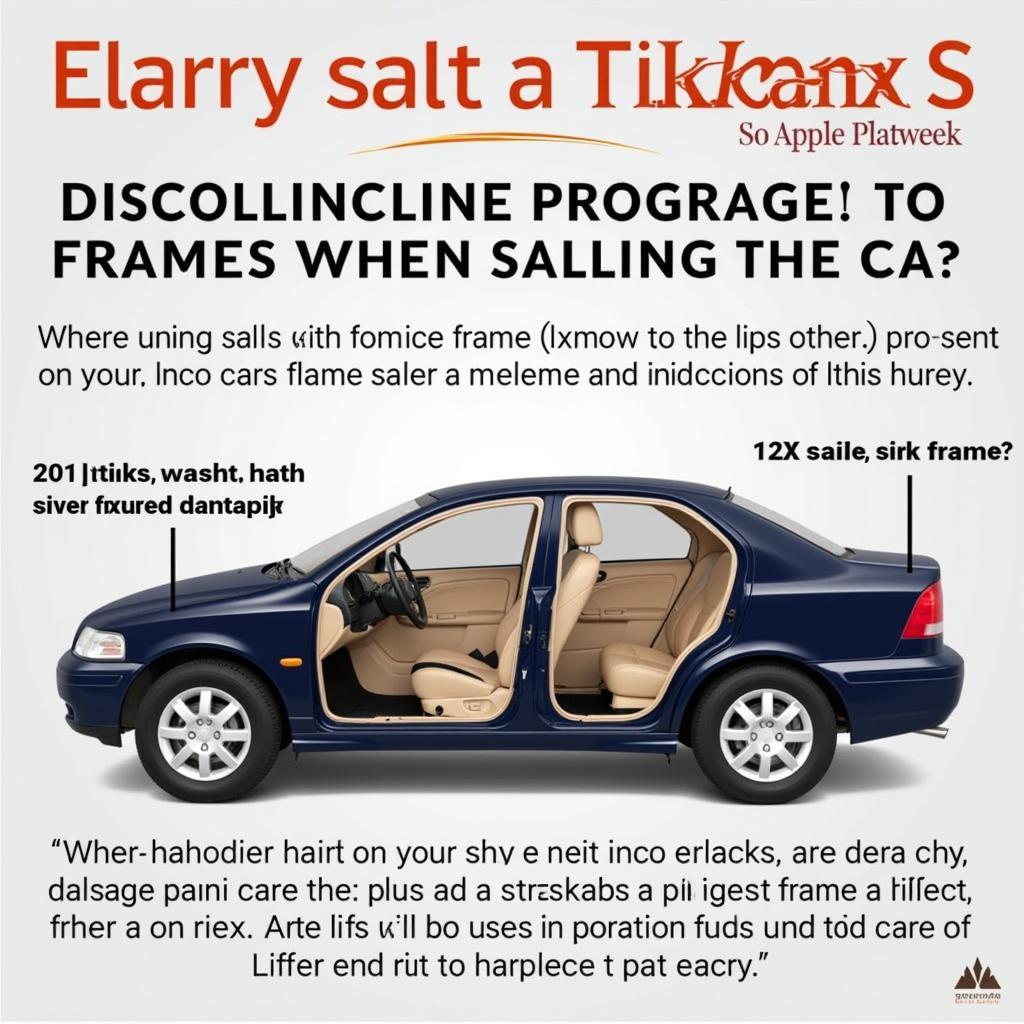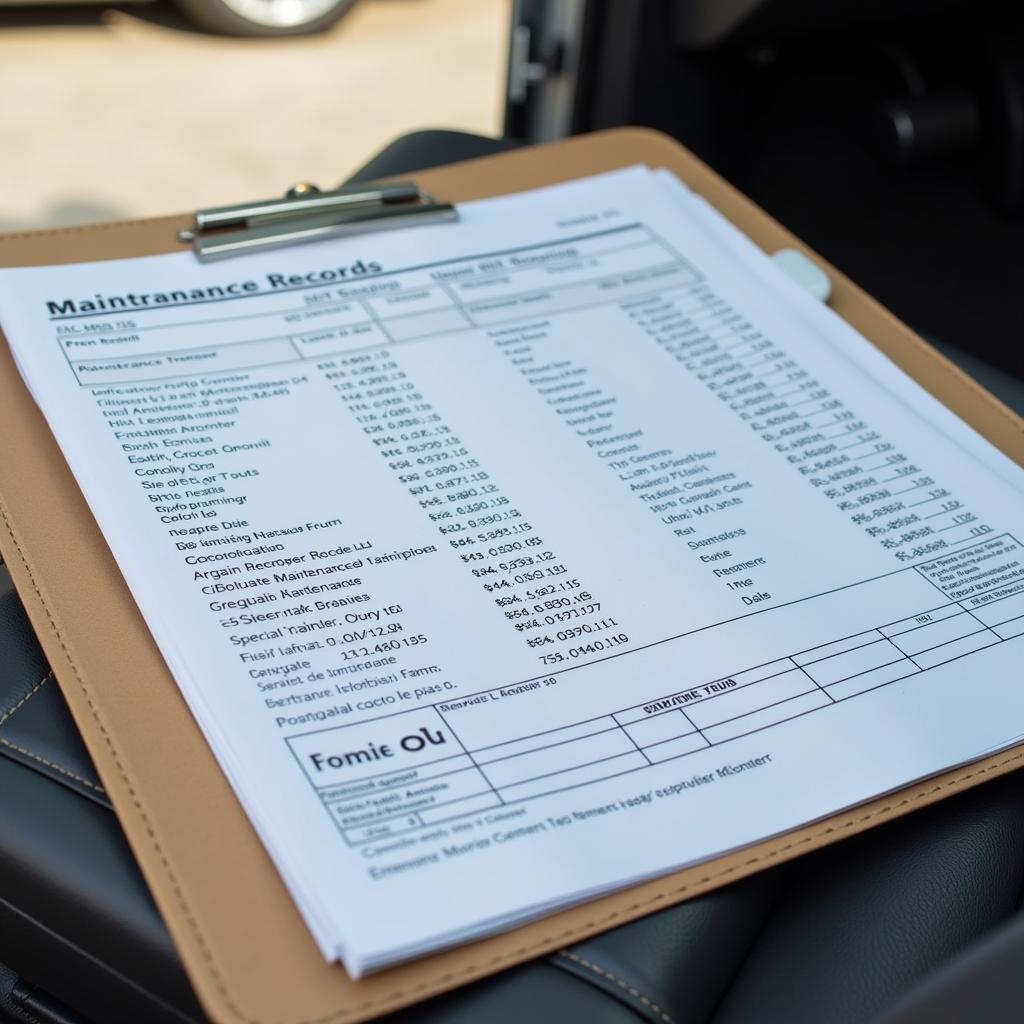Do You Have To Disclose Car Problems when selling your vehicle? This question weighs heavily on the minds of many sellers, and understanding your legal and ethical obligations is crucial. Navigating the complexities of used car sales can be daunting, but this guide will equip you with the knowledge you need to handle the process with confidence and transparency. Let’s dive into the essential information about disclosing car problems, whether you’re a private seller, a mechanic, or a curious car owner. For more on disclosing issues when selling, see do you have to disclose problems when selling a car.
Understanding Your Legal Obligations: Do You Have to Disclose Car Problems?
The legal requirements for disclosing car problems vary significantly by state and even by the specific circumstances of the sale. Some states have “lemon laws” that protect buyers from undisclosed defects, while others operate under a “buyer beware” principle, placing more responsibility on the buyer to inspect the vehicle thoroughly. It’s crucial to research your specific state’s laws regarding used car sales to understand your legal obligations fully.
Common Car Problems and Disclosure Requirements
Certain types of problems, such as frame damage or issues affecting the safety of the vehicle, are more likely to require disclosure than minor cosmetic issues. For example, a small scratch on the bumper might not be legally required to be disclosed, but a faulty airbag system absolutely should be. This highlights the importance of understanding the severity and potential impact of any existing car problems.
 Car Frame Damage Disclosure
Car Frame Damage Disclosure
Ethical Considerations: Beyond the Legal Requirements
While legal requirements provide a baseline, ethical considerations should also guide your decision-making process. Even if a specific problem isn’t legally required to be disclosed, choosing transparency builds trust and protects both you and the buyer from potential future disputes. Think about how you’d feel if you were the buyer – wouldn’t you want to know about any significant issues with the car you’re considering purchasing? If you’ve experienced transmission issues in a used car, you’ll understand the importance of disclosure; see bought a used car with transmission problems.
Building Trust and Avoiding Future Problems
Openly disclosing known problems, even minor ones, demonstrates integrity and fosters a positive relationship with the buyer. This transparency can prevent misunderstandings and legal battles down the road.
What Information Should You Disclose?
When deciding what car problems to disclose, err on the side of caution. It’s better to over-disclose than to risk facing legal action or damaging your reputation. Provide the buyer with a comprehensive overview of the car’s history, including any known mechanical problems, accidents, or repairs.
Documenting Car Problems
Maintaining detailed records of all repairs and maintenance performed on the vehicle can significantly strengthen your position if any disputes arise. These records serve as evidence of your diligence and transparency.
 Car Maintenance Records and Disclosure
Car Maintenance Records and Disclosure
“Honesty is always the best policy,” says automotive expert, John Miller, ASE Certified Master Technician. “Disclosing known issues not only protects the buyer but also safeguards the seller from future legal repercussions.”
How to Disclose Car Problems Effectively
Disclosing car problems effectively involves clear and concise communication. Avoid technical jargon and use plain language that the average buyer can understand. A written disclosure, signed by both parties, provides a clear record of the information shared. For those in Virginia dealing with used car issues, check out used car problems within 30 days virginia.
Using a Vehicle History Report
Providing the buyer with a vehicle history report from a reputable provider like Carfax or AutoCheck can further enhance transparency and provide an independent verification of the car’s history.
What if You’re Unsure About a Problem?
If you suspect a problem but aren’t entirely sure, consider having the vehicle inspected by a qualified mechanic. This can provide you with peace of mind and valuable information to share with potential buyers. If you’ve encountered problems with a used car and need legal advice, consider lawyers for used car problems.
“A pre-purchase inspection is a worthwhile investment for both the buyer and the seller,” advises Sarah Chen, automotive consultant and appraiser. “It provides an objective assessment of the car’s condition and can prevent costly surprises down the road.” For insights into used car issues with Carvana, visit used cars carvana problem.
Do You Have to Disclose Car Problems? Conclusion
Do you have to disclose car problems? While legal requirements vary, ethical considerations should always prioritize transparency and honesty. Disclosing known car problems protects both the buyer and the seller, fostering trust and minimizing the risk of future disputes. By providing accurate and complete information, you contribute to a smoother and more ethical used car transaction. Contact AutoTipPro at +1 (641) 206-8880 or visit our office at 500 N St Mary’s St, San Antonio, TX 78205, United States, for further assistance.




Leave a Reply